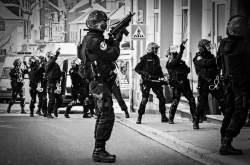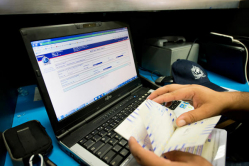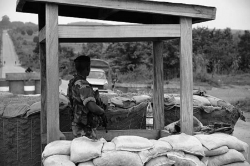COLOMBO, Sri Lanka -- Boosting the ability of frontline border officers to detect travelers as potential terrorists was the focus of a counter- terrorism (CT) and border management operation led by INTERPOL across Sri Lanka.
Codenamed Operation Flycatcher II, the five-day (8 - 12 November) operation saw the arrest of six suspects linked to terrorism, with further arrests and prosecutions foreseen globally as investigations continue to unfold.
The operation saw Sri Lanka’s police, border and immigration agencies undertake specialized INTERPOL training on forensic identification techniques, CT investigative skills and INTERPOL’s data sharing mechanisms before carrying out tactical operations in the field.
Right data, right place, right time
“Access to information in our databases is at the heart of INTERPOL’S counter-terrorism operations, especially those that can prevent travel,” said INTERPOL’s Director of Counter-Terrorism, Gregory Hinds.
“Operation Flycatcher demonstrates the importance for countries to use INTERPOL’s wide range of criminal databases in strategic places like border crossings,” added Mr Hinds.
With biometric data playing a growing role in tackling crime and terrorism, officers worked together using INTERPOL’s biometric identification capabilities to identify potential terrorism suspects.
The operation saw more than 800 hits and new uploads to INTERPOL’s wide range of criminal databases, particularly its stolen travel documents database with more than 100 million documents reported stolen from all over the world.
Stolen passports are a key asset for terrorist mobility, particularly for foreign terrorist fighters returning from conflict zones.
INTERPOL’s databases contain details on around 135,000 foreign terrorist fighters, with data collected from hotspots such as borders, battlefields and prisons.
Highlighting how terrorist activity is often linked to other crime areas, more than 200,000 checks on INTERPOL’s wanted persons database led not only to the identification of potential terrorists but also men and women wanted for forging travel documents, fraud and financial crime, weapons smuggling and human trafficking.
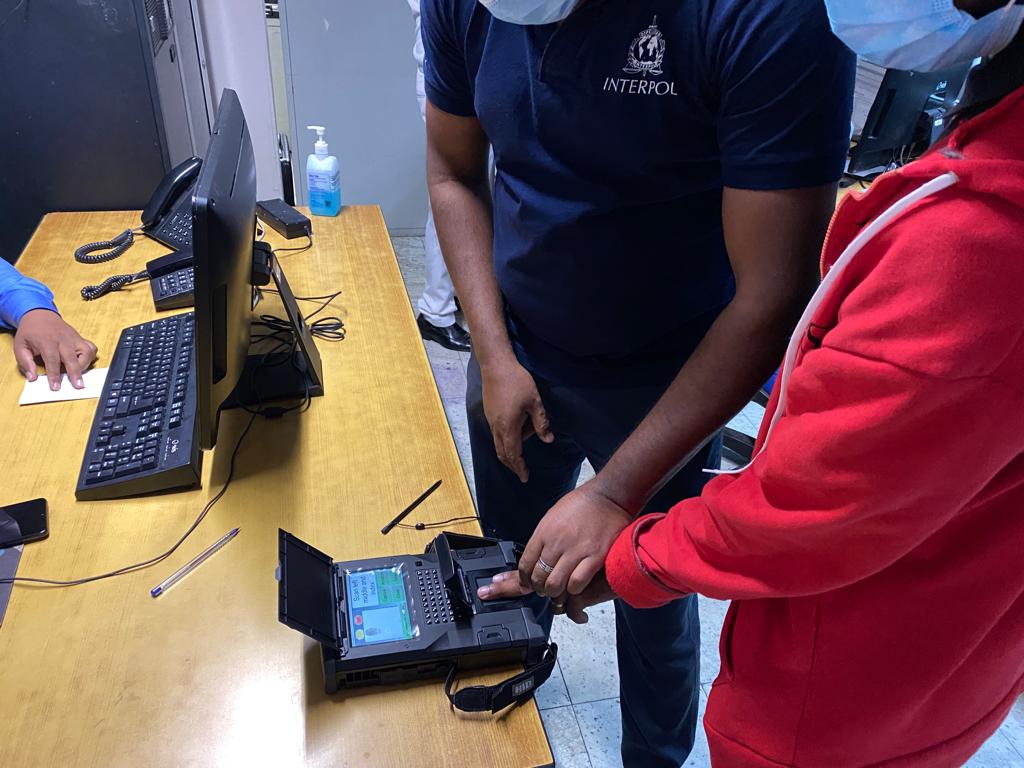
Following the money trail
The financing of terrorism is a core component of INTERPOL’s strategy in the fight against terrorism.
Traveler’s names were checked against INTERPOL’s databases of suspicious financial transaction in the framework of INTERPOL’s Financial-to-Law Enforcement exercise (FINLEX).
Seven suspects and five suspicious monetary transactions were detected, prompting investigations in associated countries.
“Boosting the way we work nationally to detect terror suspects travelling in Sri Lanka means making sure all our police agencies have the necessary capabilities, skillsets and mechanisms in place to prevent and investigate the crime area holistically,” said Chief Inspector Lakshman Rajakaruna who heads operations at the INTERPOL National Central Bureau in Colombo.
‘This is why such a wide range of Sri Lankan agencies took part in this important operation, coming together with the common goal of tackling terrorism from all angles, together with INTERPOL,’’ added Mr Rajakaruna.
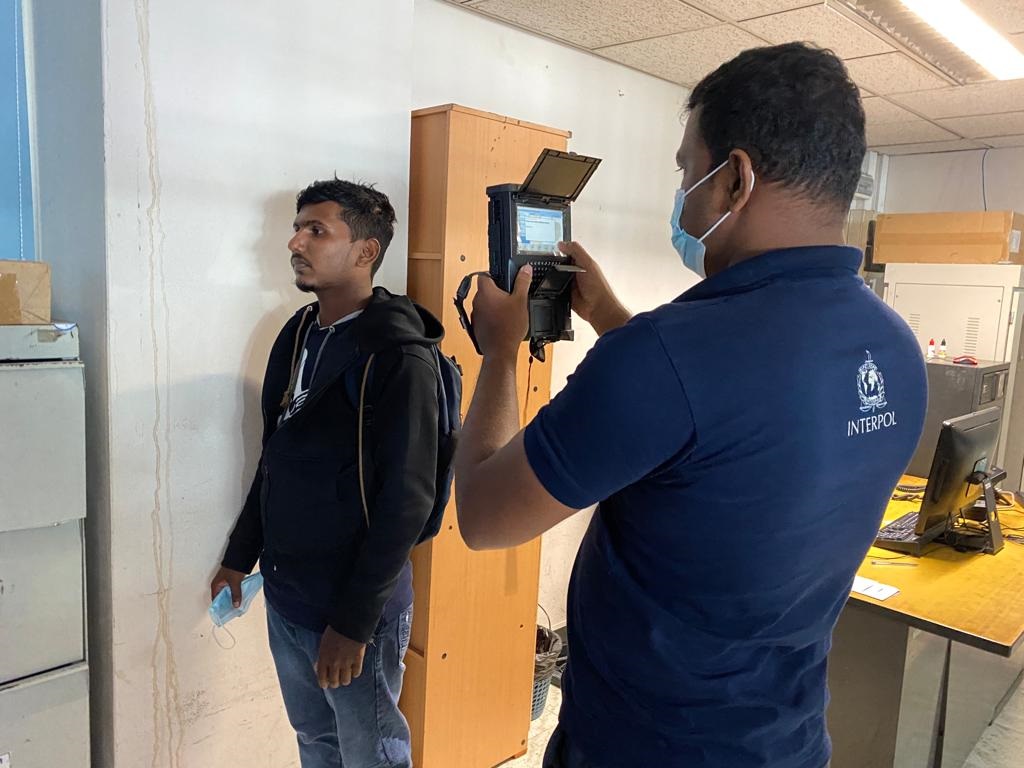
Local operation with global input
INTERPOL coordinated the cooperative action of nine national law enforcement agencies working together across Sri Lanka and at Bandaranayaka International Airport using INTERPOL capabilities to detect potential terrorists:
- INTERPOL National Central Bureau for Sri Lanka in Colombo
- Counter Terrorism and Investigation Division
- Criminal Investigation Department (CID)
- Criminal Records Department (CRD)
- Financial Investigation Unit of CID
- Financial Intelligence Unit Central Bank of Sri Lanka
- Immigration and Emigration Department
- Special Task Force
- State Intelligence Service (SIS)
Ahead of operations, Sri Lankan agencies received and analysed INTERPOL-sourced intelligence on transnational terrorist networks to better understand their methods, motives and financing and – ultimately – to identify and arrest suspects.
Operations in the field enabled investigators to link a number of suspects to terrorist organizations active in Sri Lanka, including the Liberation Tigers of Tamil Eelam (LTTE), the Islamic State (IS), and the National Thowheeth Jama’ath which was the terrorist group responsible for the 2019 Easter Bombings attack in Sri Lanka.
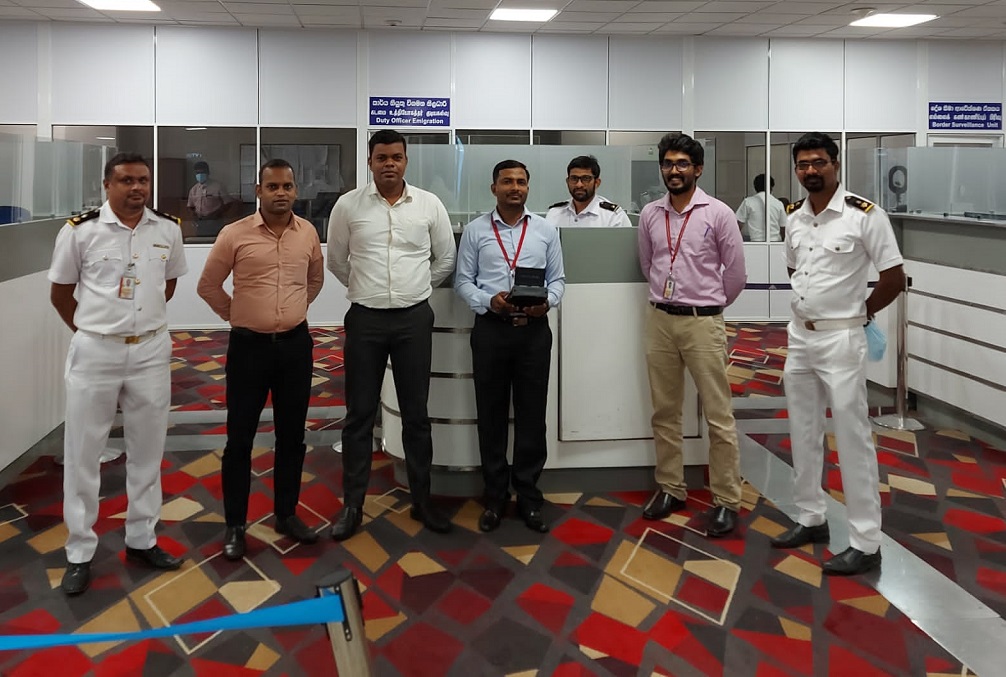
Easter bombings: seven strikes in 21 minutes
In April 2019, nine suicide bombers simultaneously detonated their devices in seven locations around Sri Lanka killing 269 people and leaving 500 injured.
Whereas domestic terrorism – principally from LTTE – represented Sri Lanka’s main terrorist threat for decades, the attack illustrated escalating IS-inspired religious extremism.
Cooperation between the Sri Lankan authorities and INTERPOL resulted in a number of strong leads and arrests. One of the alleged ringleaders behind the bomb attacks, Ahamed Milhan Hayathu Mohamed, was arrested in the Middle East following the publication of an INTERPOL Red Notice. He was later extradited back to Sri Lanka, along with four other suspects, following their arrest in the Middle East.
Flycatcher is a CT operation carried out in the framework of INTERPOL’s CT programme for Sri Lanka and Maldives (CT-SLaM) funded by the European Union and jointly implemented with the United Nations Office on Drugs and Crime.
The first Flycatcher operation was conducted with the Maldives in July 2021 and involved officers from several national law enforcement agencies. Results included some 1,000 hits against INTERPOL’s databases, one arrest for a firearms-related crime, and intelligence gathering to feed associated investigations worldwide.

Countries involved
Related news

Breakthrough in longstanding Dutch missing person case
11 October 2024
INTERPOL welcomes new DNA legislation in Belgium
11 April 2024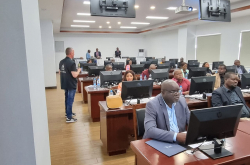
Border security threats focus of STOP operations in Africa
8 December 2023




